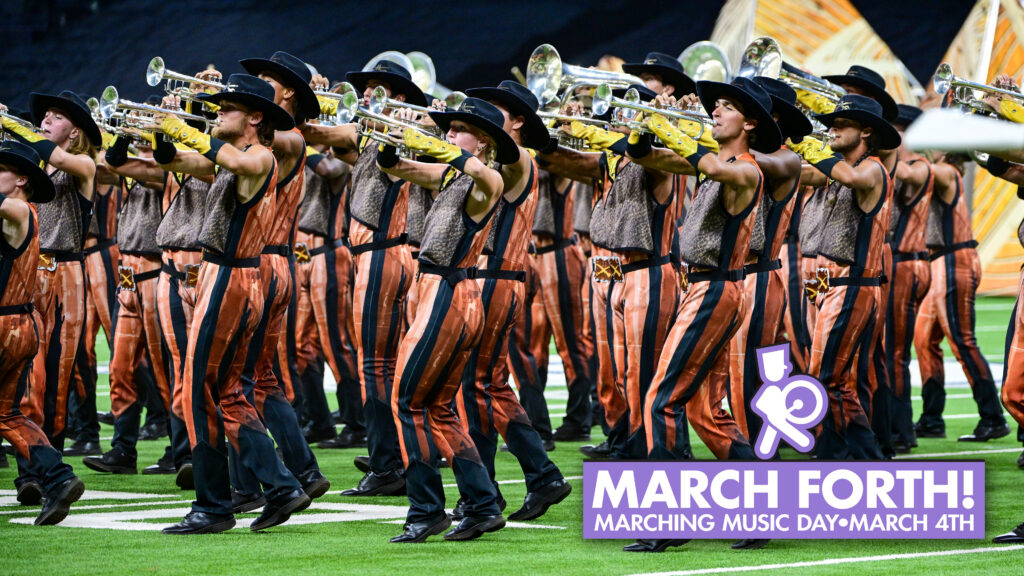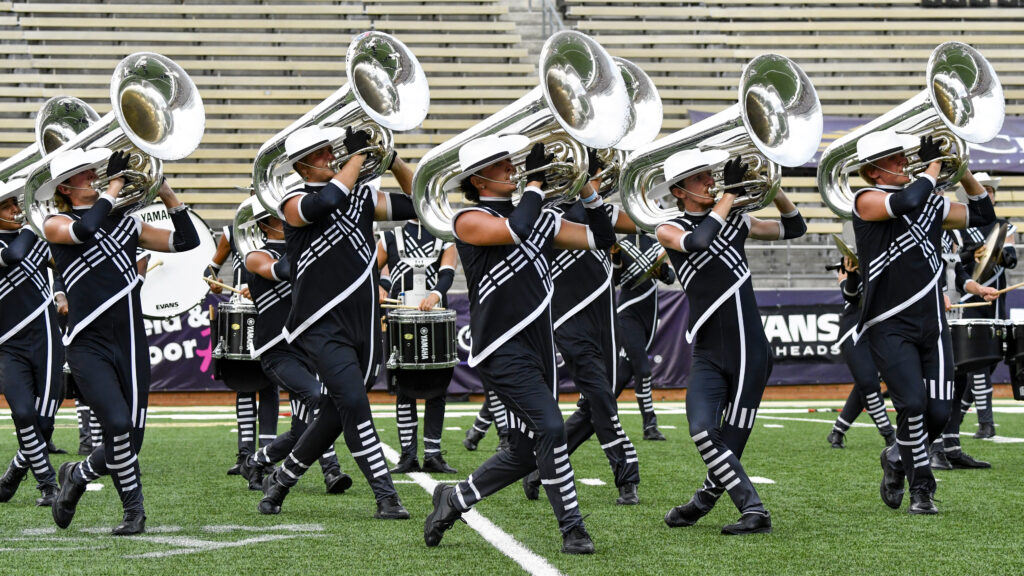The 4th of July is a sacred national holiday. It is a time to honor our past, appreciate our friends and family, and enjoy a little rest and relaxation.

That is, unless you’re in a drum corps. For corps members, the 4th of July means one thing and one thing only: Parades. And lots of them. From early in the morning and far into the evening, one after another, mile after endless mile, parades consume not only the day of the holiday, but all of the days surrounding it as well, turning society celebrations of the American dream into a drum corps nightmare. For corps, parades are a necessary evil. No one really likes doing them — they’re long and hot for the members, a logistical nightmare for the support staff and wasted rehearsal time for the instructional staff. But they also pay well. The larger parades can easily pay a corps’ gas bills for several days. Also, they’re good for public relations in areas that host drum corps shows or rehearsal sites. Beyond these dubious positives, parades exhibit few redeeming features. You’re up at the crack of dawn in order to be on time for the first parade stepoff. You report in, you go warm up, then you wait. Waiting often takes as long as the marching. You wait for a warmup spot. You wait to line up. You wait to merge with all the other lines. You wait to step off. And meanwhile, all you can think about is that you could still be asleep instead of standing outside in the sun in July wearing a wool uniform and a 30-pound drum. If you’re lucky, you get to stop off near the head of the parade and before any animals that you might end up sharing the parade route with. If you’re in the middle or the back of the lineup, the parade becomes a game of dodge in a landmine field. The bus always smells particularly fragrant after a horse-heavy parade. Most parade routes are also littered with all manner of debris from the crowd, especially when the route is very narrow, which is most of the time. So while you’re on the lookout for horse droppings, you also get to trip over cups, cans, plates, streamers and other items which are apparently essential to the celebration of patriotic holidays. And there is also the errant 3-year-old who slips out of his parent’s grasp and the tipsy older gentleman who make catcalls at the guard. All of these elements help keep you on your toes as the parade progresses, and they add some variety to what is otherwise a rather monotonous process. Parades are an endless cycle of cadence, tune, cadence, tune, that goes mind-numbing after only a few repetitions. Most everyone in the corps prefers the cadence part of the cycle, as it gives the arms a break and is more interesting to play. The crowd, however, wants to hear blaring brass. And so calls of “Play something!” punctuate the drum breaks. For the pit, parades involve a slight change in job description from consummate musician to water boy (although I prefer the term “hydration engineer”). The job involves a skillful dispensation of water in a manner that keeps the corps hydrated while pacing out the water supply over the length of the parade. A skilled hydration engineer can water 10 or 12 horn line members during just one cadence, and also tie shoes and pick up dropped sticks when necessary. It’s a tough job, but someone has to do it. And the marching members very much appreciate the pit’s effort in this arena. But all the water in the world cannot make the parade any shorter or more enjoyable. It is the nature of the parade to be long, hot and painful; and on the 4th of July, this is especially true. By the end, everyone’s back, legs and arms ache and no one wants to play that parade tune one more time. But here come the TV cameras, and you have to look like you haven’t just marched however many miles, and that you want to stay and play. Then finally, after one more “Hail Mary” for the reviewing stand, you’re done … with this parade. Never fear, though — it’s the 4th, and that means you still have two to go. By the end of the day, no one cares about fireworks or ice cream — all anyone wants to do is sit in air-conditioning drinking Gatorade, which is precisely what you do while you drive to tomorrow’s parade sites. Don’t get me wrong — I’m as patriotic as the next person, but I’ll never truly be able to enjoy the 4th of July again … all because of parades.
Send Emily feedback and ideas at [email protected]. Emily Tannert is currently living in Knoxville, Tenn., taking a year off from school before she returns to Northwestern University in Evanston, Ill., for a master’s degree. She was the 2002 drum major for the Pioneer, and plays in the 2003 Glassmen pit. She will age out this summer.





